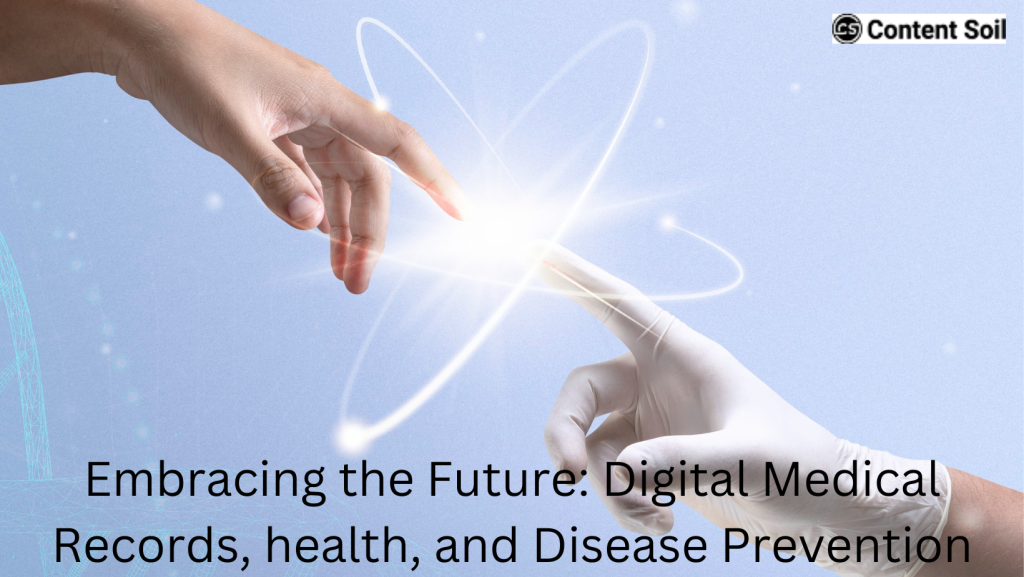Introduction:
In recent years, advancements in technology have revolutionized the field of medicine, leading to significant improvements in patient care and health outcomes. Among these technological breakthroughs, the digitization of medical records has emerged as a game-changer, allowing for seamless sharing of information and improved patient-doctor communication. Moreover, the integration of family trees and predictive analytics into digital medical systems holds great potential for future generations. By leveraging this advanced technology, individuals can gain unprecedented insights into their genetic heritage, foresee potential health risks, and take proactive measures for disease prevention.
The Power of Digital Medical Records:
Digital medical records have paved the way for efficient storage, accessibility, and analysis of patient data. This transition from traditional paper-based records to electronic systems has transformed healthcare delivery, facilitating improved coordination among healthcare providers, reducing medical errors, and enhancing patient safety. With digital records, individuals have a comprehensive and centralized repository of their medical history, allowing healthcare professionals to make informed decisions and provide tailored treatments.
Family Trees and Genetic Insights:
Incorporating family trees into digital medical records offers a unique opportunity to understand one’s genetic heritage comprehensively. By mapping out familial relationships, individuals can gain valuable insights into their genetic predispositions for certain diseases. Inheriting certain genes from our ancestors may increase our susceptibility to various conditions, such as heart disease, diabetes, or certain types of cancer.
By incorporating family trees into digital medical records, future generations can better understand their inherited risks. Analyzing patterns of diseases within families can highlight potential genetic markers, enabling healthcare providers to offer personalized preventive measures and early detection strategies. Armed with this knowledge, individuals can make informed decisions regarding lifestyle choices, screening tests, and potential interventions, ensuring a proactive approach to their healthcare.
Predictive Analytics for Disease Prevention:
The integration of predictive analytics into digital medical systems takes disease prevention to new heights. By leveraging vast amounts of data, advanced algorithms can identify patterns, detect trends, and make accurate predictions regarding an individual’s health risks. Combining genetic information, lifestyle factors, and environmental data, these predictive models can generate personalized risk assessments, empowering individuals to take preventive measures.
For instance, based on the analysis of family history, genetic markers, and lifestyle data, predictive analytics is able to predict who will be at risk of developing certain conditions. Armed with this knowledge, healthcare providers can offer tailored interventions, such as lifestyle modifications, targeted screenings, or preventive medications, well in advance. This proactive approach not only enhances the effectiveness of preventive strategies but also reduces healthcare costs by mitigating the need for extensive treatments in the future.
Empowering Future Generations:
The integration of family trees and predictive analytics into digital medical records has the potential to empower future generations in multiple ways. Firstly, it allows individuals to gain a comprehensive understanding of their genetic heritage, fostering a sense of identity and connection with their ancestors. Knowing one’s family history and shared genetic traits can also facilitate stronger bonds within families, as individuals become aware of their collective health challenges and can support each other in disease prevention.
Secondly, this advanced technology empowers individuals to take control of their health and make informed decisions. By understanding their genetic predispositions and risk factors, individuals can adopt healthier lifestyles, engage in regular screenings, and pursue appropriate interventions. This proactive approach to healthcare promotes overall well-being and helps future generations break the cycle of inherited diseases.
Challenges and Ethical Considerations:
While the future of digital medical records and predictive analytics holds great promise, several challenges and ethical considerations must be addressed. Privacy and data security concerns should be a top priority to ensure the protection of sensitive genetic and medical information. Transparent and ethical guidelines are necessary to guide the responsible use of predictive analytics, avoiding discrimination or stigmatization based on genetic profiles.
Conclusion:
Digital medical records, family trees, and predictive analytics represent a revolutionary approach to healthcare. By incorporating genetic information, analyzing family history, and leveraging predictive models, individuals can gain invaluable insights into their genetic heritage and take proactive measures for disease prevention. This advanced technology has the potential to empower future generations, enabling them to make informed decisions, break the cycle of inherited diseases, and embrace healthier lifestyles. However, it is crucial to address privacy concerns and establish ethical guidelines to ensure the responsible use of this transformative technology. By embracing these innovations, we can shape a future where individuals have the knowledge and tools to optimize their health and well-being


